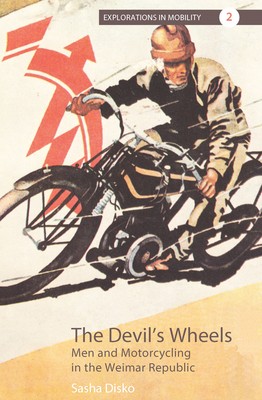
- We will send in 10–14 business days.
- Author: Sasha Disko
- Publisher: Berghahn Books
- ISBN-10: 1789205239
- ISBN-13: 9781789205237
- Format: 15.2 x 22.9 x 2 cm, softcover
- Language: English
- SAVE -10% with code: EXTRA
Reviews
Description
During the high days of modernization fever, among the many disorienting changes Germans experienced in the Weimar Republic was an unprecedented mingling of consumption and identity: increasingly, what one bought signaled who one was. Exemplary of this volatile dynamic was the era's burgeoning motorcycle culture. With automobiles largely a luxury of the upper classes, motorcycles complexly symbolized masculinity and freedom, embodying a widespread desire to embrace progress as well as profound anxieties over the course of social transformation. Through its richly textured account of the motorcycle as both icon and commodity, The Devil's Wheels teases out the intricacies of gender and class in the Weimar years.
EXTRA 10 % discount with code: EXTRA
The promotion ends in 15d.06:19:23
The discount code is valid when purchasing from 10 €. Discounts do not stack.
- Author: Sasha Disko
- Publisher: Berghahn Books
- ISBN-10: 1789205239
- ISBN-13: 9781789205237
- Format: 15.2 x 22.9 x 2 cm, softcover
- Language: English English
During the high days of modernization fever, among the many disorienting changes Germans experienced in the Weimar Republic was an unprecedented mingling of consumption and identity: increasingly, what one bought signaled who one was. Exemplary of this volatile dynamic was the era's burgeoning motorcycle culture. With automobiles largely a luxury of the upper classes, motorcycles complexly symbolized masculinity and freedom, embodying a widespread desire to embrace progress as well as profound anxieties over the course of social transformation. Through its richly textured account of the motorcycle as both icon and commodity, The Devil's Wheels teases out the intricacies of gender and class in the Weimar years.


Reviews